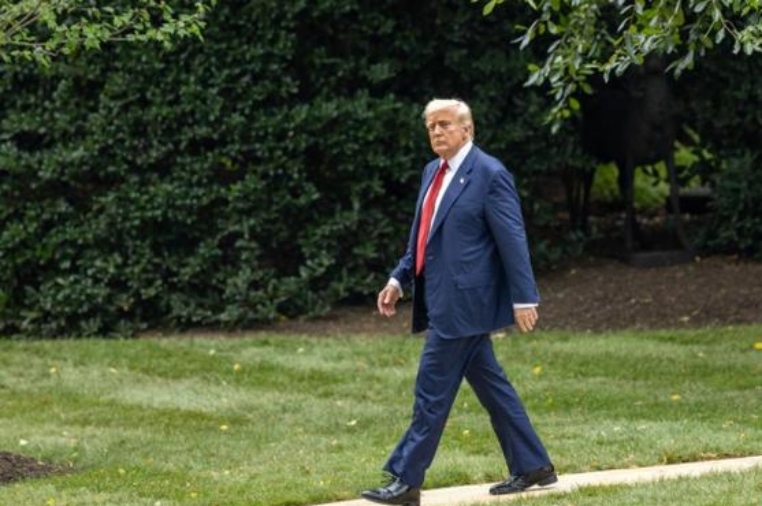
On August 1 local time, the US Department of Labor released the employment data for July. The non-farm sector added only 73,000 new jobs that month, far below the market expectation of 110,000, and the unemployment rate rose to 4.2%. Even more astonishingly, the data on new jobs added in May and June was significantly revised downward, with a combined reduction of 258,000 jobs. Shortly after the data was released, US President Trump promptly responded by ordering the dismissal of Erica McIntosh, the director of the Bureau of Labor Statistics, accusing her of "manipulating employment data for political purposes." This incident quickly drew widespread attention from all sectors, reflecting the complex entanglement between the current state of the US economy and political intervention.
From an economic perspective, the dismal performance of the July employment data is a strong signal of the slowdown in the US economic growth. Previously, although the US job market experienced fluctuations, it was generally strong, with an average of over 140,000 new jobs added each month. However, this time the data has dropped sharply, indicating a significant cooling of the job market. The newly created jobs are mainly concentrated in the healthcare and social service industries. These two industries are relatively stable and less affected by economic cycle fluctuations, which indirectly reflects the insufficient expansion momentum of other industries. The scarcity of new jobs created in industries such as manufacturing and construction corroborates the recent decline in the manufacturing sentiment index in the United States, indicating that the real economy is facing difficulties.
The downward revision of the data has further intensified market concerns over the economic outlook of the United States. The significant adjustments in the data for May and June indicate that the optimistic judgment of the job market in the past needs to be re-examined, and the pace of economic recovery may be more difficult than imagined. When confronted with an uncertain economic environment, enterprises tend to be cautious about investment and recruitment, further suppressing employment growth and creating a vicious circle. This has also led to a change in market expectations regarding the direction of the Federal Reserve's monetary policy. The already divergent expectations of interest rate cuts have become even stronger. Investors have been adjusting their asset allocations one after another, and the stock market, bond market, foreign exchange market and commodity market have experienced sharp fluctuations.
From a political perspective, Trump's move to fire McIntosh was regarded by many as an act of political interference in economic data statistics. McCantafer was nominated by former President Biden in July 2023 and was approved by the Senate of Congress in January 2024. Trump accused her of fabricating employment data before the 2024 election to help Democratic candidate Harris win. Now, he has significantly revised down the data to embarrass himself and the Republican Party. Such accusations lack conclusive evidence, but in the politically polarized United States, they can easily trigger political disputes.
This incident has also raised questions about the independence of US statistical agencies. As the agency responsible for releasing key economic data, the Bureau of Labor Statistics' independence is an important guarantee for the credibility of the data. Regular revision of data is a normal process in statistical work. Due to the large size of the US economy, there is a lag in data collection. As more information is aggregated, it is reasonable to make initial valuation adjustments. However, Trump's tough intervention has raised concerns that political factors may interfere with data statistics, undermine the credibility that statistical agencies have long accumulated, and cast doubt on the authenticity and reliability of future economic data.
After the incident, reactions from all walks of life in the United States were diverse. Democrats accused Trump of looking for a scapegoat and undermining the independence of statistical agencies. Some Republican members also expressed dissatisfaction with the dismissal, believing that officials should not be replaced at will just because they dislike the data. Economists are generally concerned that political interference in economic data statistics will further disrupt market expectations and increase the difficulty of economic decision-making.
The US economy is currently confronted with numerous challenges. Factors such as trade frictions, high debt levels, and the global economic slowdown are all restricting its development. Employment data is just the tip of the iceberg; it reflects the deep-seated structural problems of the US economy. If the Trump administration wants to truly improve the economic situation, it should start from macro policy adjustments and promoting the development of the real economy, rather than targeting data statisticians. Otherwise, not only will the economic predicament not be resolved, but political confrontation and market chaos may also be further exacerbated.

Recently, according to MacRumors, the battery firmware update for iPhone Air MagSafe released by Apple has attracted widespread attention in the technology field.
Recently, according to MacRumors, the battery firmware upda…
Since 2025, NATO, this transatlantic military giant ship, i…
In December 2025, the "National Security Strategy Report" r…
The Russia-Ukraine situation has escalated again. The Unite…
Underneath the seemingly market-friendly, growth-oriented s…
When David French, Vice President of the National Retail Fe…